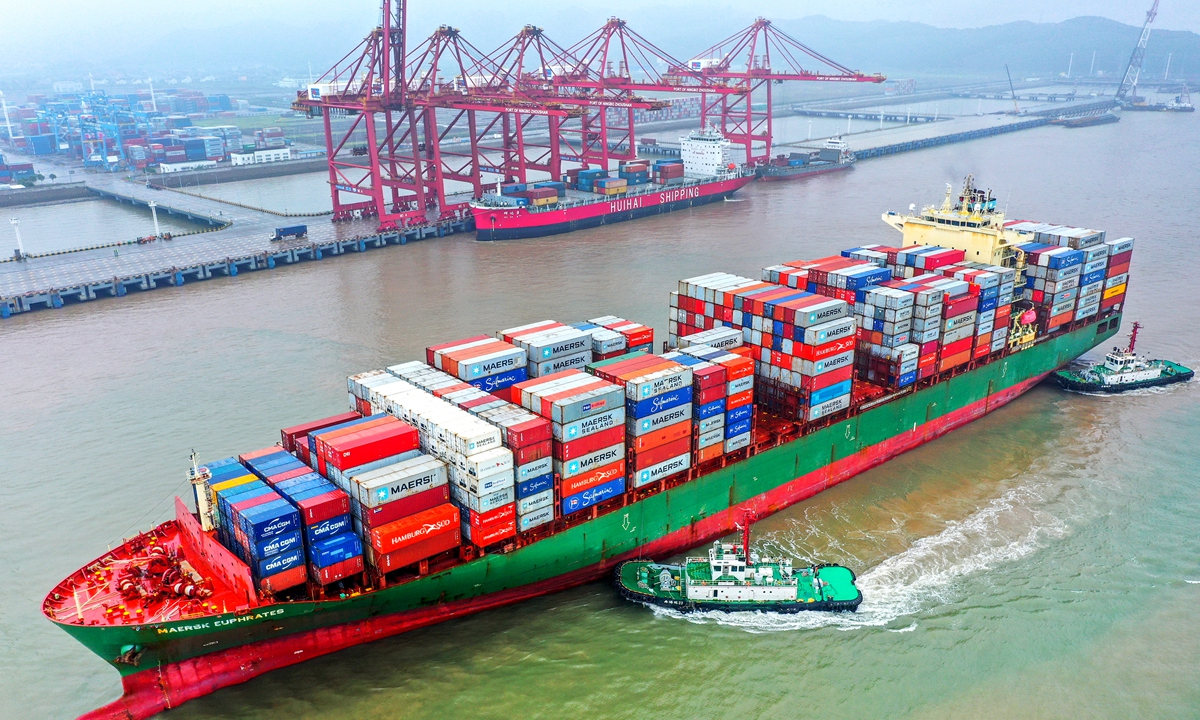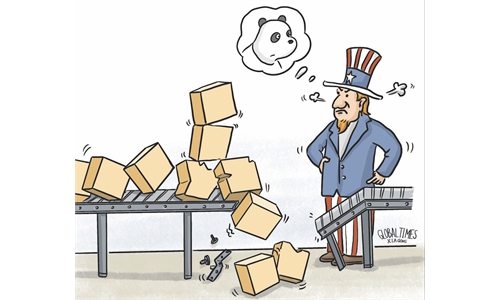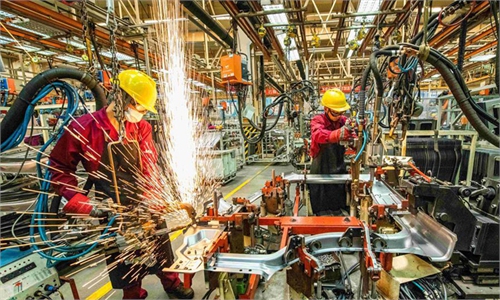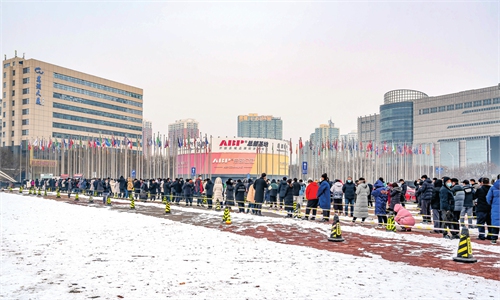
A Maersk ship makes berth in Dapukou terminal at Jintang port area of Ningbo Zhoushan port which runs 18 shipping routes covering the Belt and Road Initiative. Photo: cnsphoto
As the Omicron variant of COVID-19 rages out of control and infecting a record number of people in Western countries like the US, it is nothing but irony to see Western media outlets talk more critically than ever about sporadic infections in China and its strict zero-COVID strategy.
Now with the latest resurgence in a few Chinese cities, many Western media outlets have seized the chance and launched a new wave of attacks against the zero-COVID policy, which they deemed as "unsustainable". For instance, the International Monetary Fund managing director Kristalina Georgieva said on Friday that China's zero-COVID policy is increasingly looking like a "burden", which is impinging economic recovery both domestically and in the world.
At present, such views confusing right and wrong when it comes to global coronavirus prevention prevail in the Western court of public opinion.
In fact, it is not difficult to see that the so-called supply chain worries over China's zero-COVID approach is actually based on unfounded or premature optimism regarding the end of the pandemic and is full of distortion of China's epidemic prevention and containment policy.
Ever since the outbreak of the COVID-19, Western public opinion has never got tired of mocking China's dynamic zero-COVID approach, but only to see a slap on the face of the so-called "China isolation" or "China collapse" theory by China's outstanding performance in combatting the virus. The latest "supply chain crisis" theory characterized with political and ideological bias will be no exception.
Some in the West have taken a twisted mentality toward China's anti-virus achievements, and they are reluctant to admit that China's marked rapid economic recovery is leading the world and actually supporting the global supply chains.
Those Western media outlets have seized on the intermittent flare-ups in Chinese provinces to assault on China's social and political system. And the underlying reason is Western elites are jealous of China's capability and persistence in adhering to zero-COVID policy, which has proved that China's system is much better in protecting people's health and lives.
It is this systemic advantage that has allowed China to ensure the stability of its supply chains. Major economic indicators such as industrial output growth and foreign trade for the last year all showed that China's COVID-19 prevention and control measures are beneficial to maintaining normal operation of industrial supply chains.
In comparison to Western economies rattled by the pandemic as well as the prolonged supply chain crisis in the past two years, the Chinese economy has kept growing steadily, with its foreign trade hitting a new historic record in 2021. As the Omicron variant continues to wreak havoc in the West, isn't it clear which economies are more likely to encounter supply chain problems again in 2022?
The West may want to mislead the international community about the stark differences between two divergent anti-coronavirus policies. Obviously, China's zero-COVID policy is highly successful in containing the spread of the virus, while ensuring a normalcy of industrial production and the people's livelihood.




